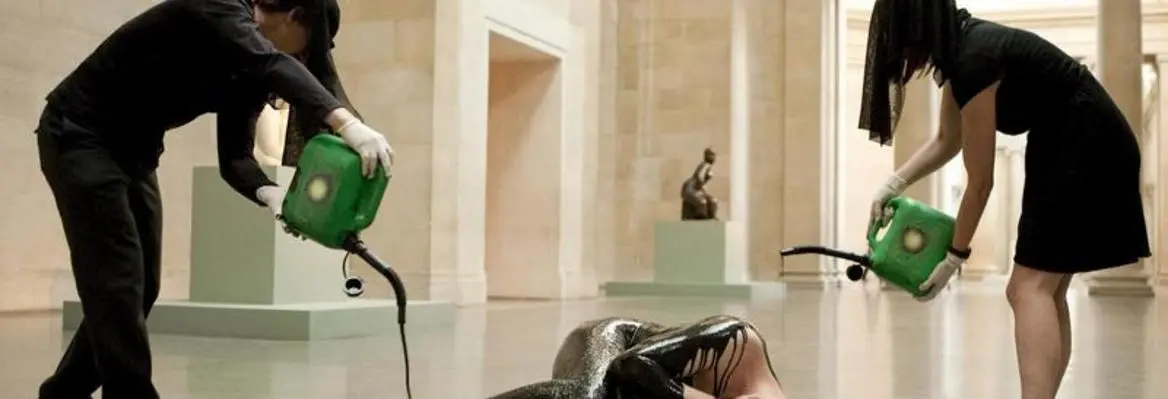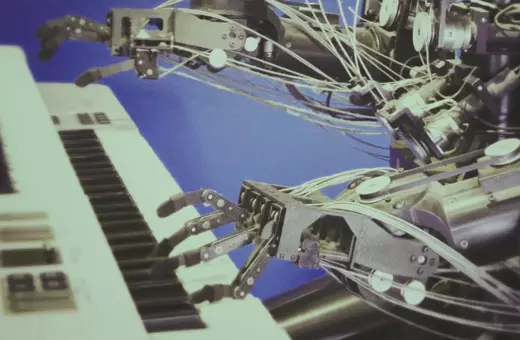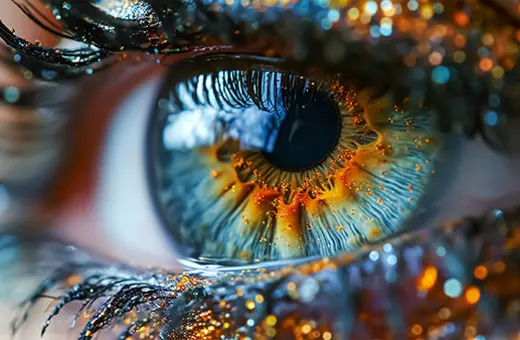Scrutiny of arts funding is in the spotlight once more. Tate have recently appeared before the Information Tribunal following their refusal to declare the exact amount they receive in sponsorship from oil giants BP. The hearing is the result of the gallery's heavily redacted response to a Freedom of Information request made by Request Initiative, working with the art-activist campaign group Platform. It comes just days after a major interactive intervention organised by art activists took place at Tate Modern. In the tribunal itself, Tate admitted to fears that such protests “might intensify” if the actual sponsorship figures were made public.
We spoke to Hannah Davey of art-activist collective Liberate Tate and Kevin Smith of Platform about the ethics of corporate sponsorship and whether art and politics can ever really be separated.
How and why does it matter that the Tate receives funding from BP?
Hannah: Well, Tate actually gets less than around 0.5% of its total annual income from BP. But BP gets huge amounts of exposure in return, a disproportionate amount you might say. For example, its logo appears all over Tate spaces while ‘The BP Walk Through British Art’ (the recent rehang at Tate Britain) actually features the oil giant's name in its title. It's a way for BP to launder its image – to make people think less about the environmental destruction it causes all over the world and instead about how altruistic it is. We think that Tate is worth a lot more than that – that our cultural institutions are important and precious and shouldn't be used as a rag to wipe away dirt.
Kevin: We're at a critical point in how we address the climate crisis – it's not just about changing lightbulbs and cycling to work; it's about looking at the dynamics of institutional power and recognising what the blocks are to the systemic change that is so urgently needed. And one of the big blocks is the economic, political and cultural power of oil companies. If we want change and progress, we need to undermine the power base that those oil companies enjoy. That needs to happen on a number of fronts, but one of them is preventing them from getting the kudos and credibility that they don't deserve through sponsoring cultural institutions.
What is worse: the Tate receiving this sort of funding or their refusal to disclose how much they actually receive?
Hannah: The fact that the figure is small isn't even a secret – it's calculated from figures in the public domain. In 2013, BP split £2million between Tate, the Royal Opera House, the British Museum and The National Portrait Gallery. So of course the detail of that figure is important, and it's probably a quarter, but their refusal to disclose begs the question, what else is Tate hiding about its relationship with BP? Which is of course part of the inspiration behind our recent performance, Hidden Figures.
Kevin: They are both inter-related! If the sums of money are as small as we suspect (which is why we think Tate is fighting tooth and claw to keep it secret) then Tate has a lot more flexibility in choosing not to take the money – so it then reflects really badly on them if they are being actively associated with trashing the planet for tiny sums compared to their overall budget.
Do you find other corporate sponsors of the Tate problematic, such as the Bank of America, Deutsche Bank or Morgan Stanley?



















Join the conversation